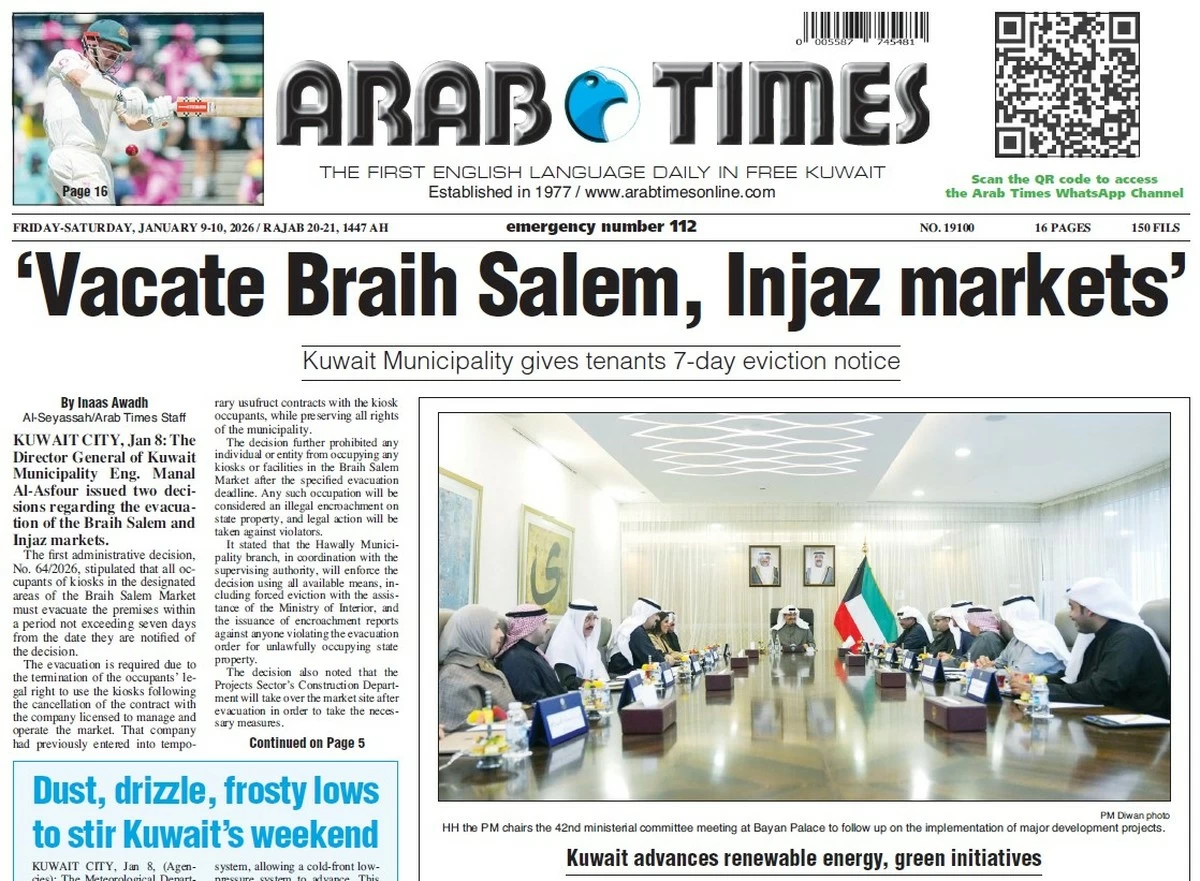19/09/2023
19/09/2023
I AM shocked by a country where officials do not accept advice, but rather fight it, and listen to the profiteers who coat falsehood with truth. They frustrate major projects when they have no interest in them, and they put pressure on people with many slogans. If any citizen confronts them, they deliberately slap accusations against them, such as false rumors, as they do in the police states.
I am shocked by a country where officials see the truth and then deviate from it, due to the fact that there are those who make the right thing appear wrong. For this reason, the right things to do become rare in the corridors of falsehood, which has a thousand doors, to the point that if one of them comes out to be addressed, it will be like a missing child; rather, it is born with a thousand faults in it because the opportunists have exploited it to such an extent that it is almost dead.
There are many cases that have been waiting for a decision for three decades. Some of them have been consumed for a long time and drunk to the point of satiety, as if the parliamentarians and ministers were intending not to wake them from their slumber to avoid their negligence being exposed, or so that their political and financial investment in it is not exposed.
That is why there are projects that have passed more than four decades and are still subject to change orders, such as the university city. Some of them were scheduled to be completed within two years, but they are now entering their fourth year, and are still crawling on the path of implementation like a turtle, such as the new Kuwait Airport. Also, some of them have turned into shameful scandals such as roads.
Not to mention poor education, and other problems resulting from one another, as if Kuwaitis were doomed to spend their lives waiting for mirages, while many of them require the decision of a minister or the one above him to be bold, and not to a session of the National Assembly or to settlements, but rather it is at the core of the daily work of ministers.
In the majority of countries in the world that seek to rely on their own strength, arms deals are not managed by intermediaries who inflate prices artificially, as it did in some deals that were concluded in Paris hotels, the result of which was a scandal that exposed the money obtained by the middlemen when they disagreed on dividing the shares.
In reality, countries can contract directly with arms factories, and the cost ends up being much lower than what the middlemen and brokers put forward.
These are some examples that Kuwait suffers from, and is directly threatened by, either in financial or economic stability, and even social stability as well, which has become an occasion for political as well as financial investment, and is subject to deals. For example, the issue of co-education and efforts to prevent it, which indicates a struggle of wills, and the subjection of society to the vision of a group of parliamentarians who invest in it on all fronts.
After the Minister of Education and Higher Education submitted to the parliament’s Ethics Committee, some parliamentarians have now begun to threaten university lecturers. This is what we had warned against, but it fell on deaf ears, while all explanations to prevent co-education arouse ridicule from Kuwaitis and the entire world, as if Kuwait intends to return “reverse”.
All of this is because the executive authority has not performed its role to the fullest. Rather, it quickly acquiesces to some parliamentarians, and the ministers compliment the parliamentarians at the expense of the state as a whole.
Therefore, when the profiteers impose their point of view on the state, this indicates the weakness of the state, and leads to more crises and divisions in society. The solution will only be achieved by a strong hand, whose decision is strict, stopping everyone in their tracks, and ending what the country is suffering from. This is because the situation has reached a point where it is affecting Kuwait’s reputation and presence abroad as well as its internal stability.
By Ahmed Al-Jarallah
Editor-in-Chief, the Arab Times


